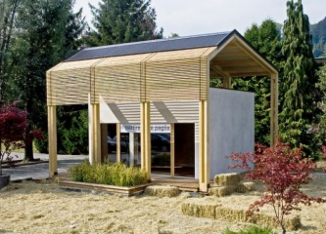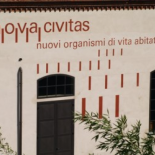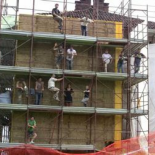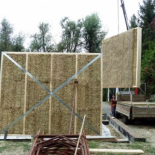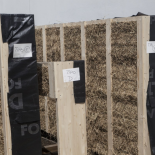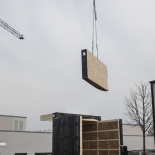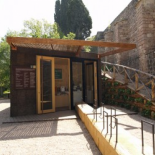n.o.v.a.civitas New Organisms of Inhabiting Life is a company that deals with research, planning, realizing and restoring building with materials of natural origin or recycled. The main objective is promoting a sustainable culture, planning and realizing new organisms of inhabiting life which base the relationship between the human being and his environment on responsibility and sustainability.
n.o.v.a.civitas srl is a company planning, building and marketing sustainable materials for the construction industry with the aim to transfer art and creativity into the business world.
n.o.v.a.civitas intends to recuperate the structural origins of natural materials for the building industry through a sustainable approach as fundamental essence for a responsible social transformation linked to the building world.
Turning Point Architecture, which is how n.o.v.a. civitas defines its planning approach, has to respect two essential elements: respect for the human being and respect for the environment, which can both be achieved giving top priority to the lives of living beings and their protection in a mutual respect of the social living and using materials of natural origin or recycled.
n.o.v.a.civitas plans, realizes and restores buildings according to the principles of bio-architecture. Architecture is the hub of society, a glocal driving force of emerging, exportable and repeatable microeconomy.
One of the objectives of n.o.v.a.civitas is to adopt the constructing technology of straw rice.
These interventions, like the pavilion realized in Biella, fall into the area of development of new architectural technologies, with particular attention to social, economic and environmental sustainability. Working with materials of a natural origin is not only architecture, but also economy, health,well being, social and cultural redemption intrinsically linked to a sustainable development. Inhabiting (i.e. the house) represents the primary pivotal element of the organic relationship between the person and the environment, a space in which society is formed and organized. The house is considered a living thing, as part of nature, a meeting point between the human being and the world surrounding him. Therefore “inhabiting” is seen as mankind’s third skin, after the epidermis and clothing.
Straw, one of the by-products of agriculture, is used as primary and raw material in realizing new organisms of inhabiting life as similar as possible to the natural ecosystems, i.e. long lasting, economically, environmentally and socially sustain- able, and able to support themselves with a low energy input, transforming these buildings from no emission passive houses to no impact active houses. Compared to a passive house, the active house, as the name suggests, can capture and produce more energy that the amount needed by the occupants. The active house project entirely realizes the sustainable process from a social, economic and environmental point of view, following the principle that the main source of renew- able energy is the saved one, and that the most convenient is the one that doesn’t get consumed. In these terms Farming the City assumes the meaning of both a reflection and a proposal on the concrete and urgent need to regenerate our cities starting from humankind and its relation- ship with nature.
Farming the City is the symbolic representation of how much change really needs to achieve within the metropolis. The Third Paradise generates the necessary drive to transform this idea of farming in the city from symbolic to real, progressively invading the suburbs, which become active boroughs, not considered just for property or commercial speculation anymore, but for the development of metropolis which integrate and at the same time protect nature.
From agriculture, we re-start a new responsible and sensible architecture which doesn’t build up but conveys a third energetic, social, environmental, food and behavioural industrial revolution. Today, architecture must confront itself with the past and with tradition, in view of technological innovation and the well being of the planet.

